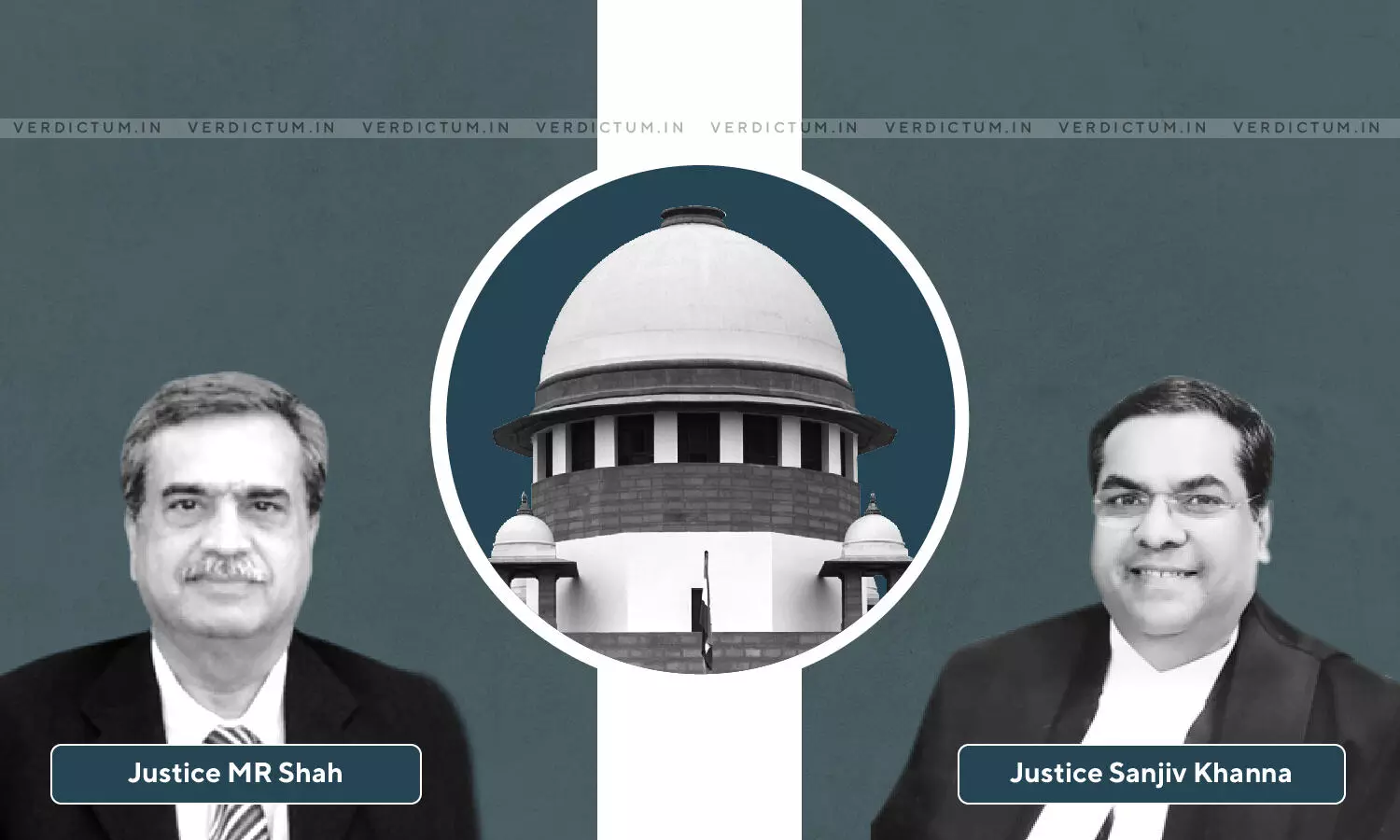
Policy Prevelant At The Time Of Death Of Deceased Employee Would Be Considered For Appointment On Compassionate Grounds - SC
 |
|The Supreme Court in its Judgment of 18th November has reiterated that the policy of compassionate appointment prevalent at the time of the death of the deceased employee is only to be considered and not the subsequent policy which came into force after the death. In this context, the Court observed -
"As per the settled proposition of law laid down by this Court for appointment on compassionate ground, the policy prevalent at the time of death of the deceased employee only is required to be considered and not the subsequent policy."
A two-judge Bench of Justice M.R Shah and Justice Sanjeev Khanna was hearing appeals filed against the decision of the Division Bench of Madhya Pradesh High Court, which had granted the benefit of the subsequent policy of compassionate appointment to the Respondents that had come into force after the death of the Respondent's father.
In this case, Respondent's father was working on the post of chowkidar in the office of Assistant Engineer. The father of the Respondent died on 8.10.2015. The Respondent was provided with compensation worth Rs 2,00,000/- as per the policy prevalent at the time of death of the deceased employee, i.e., policy dated 29.09.2014. On 31.8.2016, the policy was amended and it provided for a job on compassionate grounds for one of the heirs/dependents of the deceased employee, even if they were working on the post of work charge (chowkidar). The Respondent filed a writ petition in the High Court of MP. The Single-Judge Bench dismissed the petition on the ground that at the time of death of the Respondent's father the amended policy was not in effect. On appeal, the Division Bench of the High Court reversed this decision and directed the appellants to consider the case of the respondent.
Aggrieved by the said order, the State of MP approached the Supreme Court.
The Apex Court noted, "As per the settled proposition of law laid down by this Court for appointment on compassionate ground, the policy prevalent at the time of death of the deceased employee only is required to be considered and not the subsequent policy."
Further, the Court relied on Indian Bank and Ors. Vs. Promila and Anr. (2020) 2 SCC 729 in which it was observed and held that claim for compassionate appointment must be decided only on the basis of relevant scheme prevalent on the date of demise of the employee and subsequent scheme cannot be looked into.
The Court also relied on State of Madhya Pradesh and Ors. Vs. Amit Shrivas, (2020) 10 SCC in which the very scheme applicable in the present case was under consideration and the court held that scheme prevalent on the date of death of the deceased employee is only to be considered.
Further, the Bench rejected the contention of the Respondent that after the impugned judgment and order passed by the High Court, the Respondent has been appointed and therefore his appointment may not be disturbed, in this context, the Court observed -
"Once the judgment and order passed by the Division bench under which respondent is appointed is quashed and set aside, necessary consequences shall follow and the appointment of the respondent, which was pursuant to the impugned judgment and order passed by the Division Bench of the High Court cannot be protected."
Accordingly, the Court allowed the appeals and set aside the impugned orders of the High Court by observing that the Respondent was not eligible for appointment on compassionate grounds.